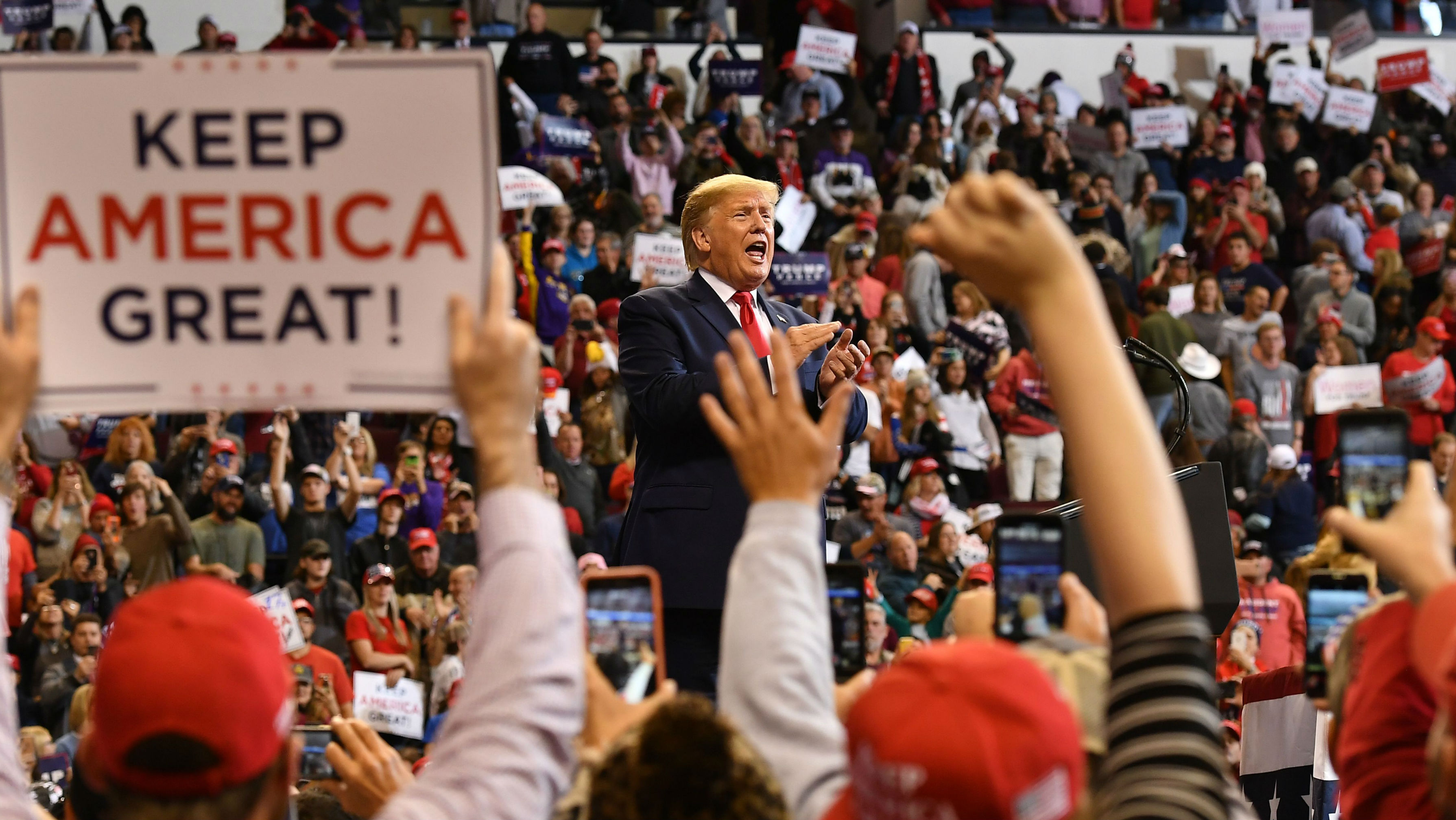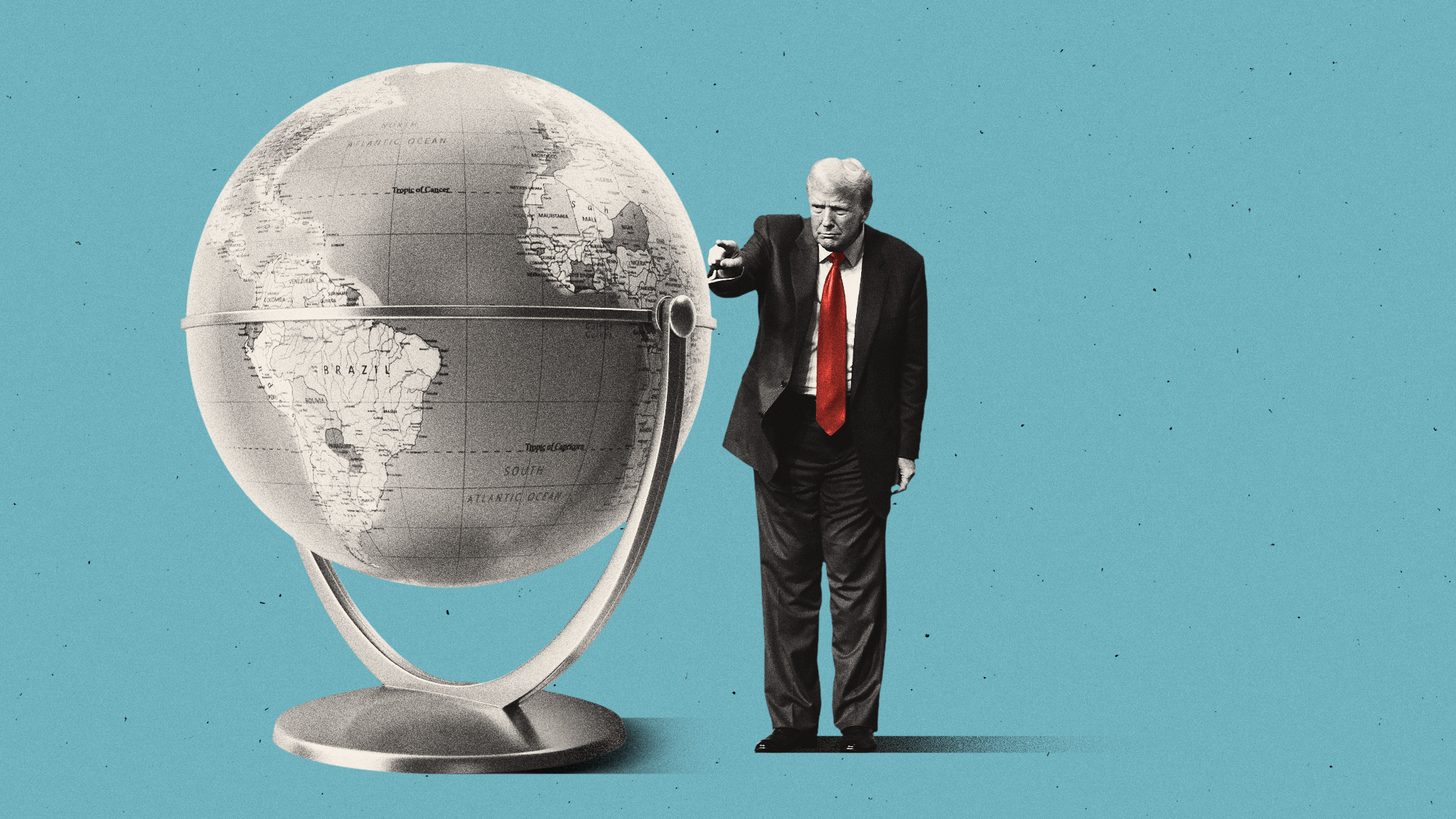Who is Clint Lorance and why has Donald Trump pardoned him?
US soldier released from jail sentence for second-degree murder

A free daily email with the biggest news stories of the day – and the best features from TheWeek.com
You are now subscribed
Your newsletter sign-up was successful
Donald Trump has granted a full pardon to Army 1st Lt. Clint Lorance, who in 2013 was found guilty of second-degree murder for ordering his men to fire on three men on a motorcycle in Afghanistan.
“I want to say thank you to President Trump,” said Lorance upon his release after six years behind bars. “And I want the rest of the country to do that, too.”
However, his reprieve has proven controversial.
The Week
Escape your echo chamber. Get the facts behind the news, plus analysis from multiple perspectives.

Sign up for The Week's Free Newsletters
From our morning news briefing to a weekly Good News Newsletter, get the best of The Week delivered directly to your inbox.
From our morning news briefing to a weekly Good News Newsletter, get the best of The Week delivered directly to your inbox.
Who is he?
Born in 1984, in Hobart, Oklahoma, Lorance joined the army on his 18th birthday when he walked into a recruiting station in Greenville, Texas and signed up as a military policeman.
After serving overseas in both South Korea and Iraq, he was deployed to Afghanistan in 2012, where he served as a lieutenant in the 82nd Airborne Division.
What happened?
A free daily email with the biggest news stories of the day – and the best features from TheWeek.com
While serving in Afghanistan, Lorance ordered soldiers under his command to open fire on three unarmed Afghan men on motorcycles.
According to US military news site the Army Times, court records state that one soldier initially fired two shots at the men, missed and watched as the men came to a stop, dismounted their bike and walked towards Lorance’s patrol.
Although Afghani soldiers on the US patrol “gestured for the motorcyclists to leave”, Lorance ordered over the radio for the platoon’s gun truck to engage the Afghan motorcyclists using an M240B machine gun.
Two of the motorcyclists were killed during the ensuing fire.
Why did Trump pardon him?
A White House statement released after the pardoning reiterated comments made by Trump that “when our soldiers have to fight for our country, I want to give them the confidence to fight”.
The statement continued: “The president, as Commander-in-Chief, is ultimately responsible for ensuring that the law is enforced and when appropriate, that mercy is granted.
“For more than two hundred years, presidents have used their authority to offer second chances to deserving individuals, including those in uniform who have served our country.”
–––––––––––––––––––––––––––––––For a round-up of the most important stories from around the world - and a concise, refreshing and balanced take on the week’s news agenda - try The Week magazine. Get your first six issues for £6–––––––––––––––––––––––––––––––
Vox reports that Trump has previously suggested that “soldiers are mistreated in the military justice system”.
The news website adds that “siding with servicepeople regardless of what they’ve been accused of is a politically savvy move that will be appreciated by [Trump's] base”.
Why is the decision controversial?
The case was contentious from the start, with Lorance and his supporters insisting that the Afghani men were in fact enemy combatants.
Writing on Fox News, former US Navy JAG officer Don Brown, who was part of Lorance’s legal team, said: “Lorance could have let the men pass and possibly kill some of his own American soldiers by blowing themselves up with a suicide bomb (as has happened in other cases) or by gunfire. He chose to stop them and save American lives.”
However, as the Army Times reports: “The shooting… earned Lorance few supporters, even within his own platoon. Several of Lorance’s soldiers testified at his court-martial that the riders posed no imminent hostile threat at the time of the shooting.”
That members of Lorance’s own platoon testified against him is highly unusual, according to The New York Times. The newspaper adds that Lorance’s colleagues suggested that he “alienated and outraged his troops [so] that they refused to follow orders and turned him in”.
There are also wider ramifications from Trump’s decision to issue a pardon. The New York Times says that “many in the military, especially in military legal circles, are not celebrating” because the pardons were seen “as a sign of disregard not only for the decisions of military juries, but for the judicial process itself”.
Rachel VanLandingham, a retired US Air Force lieutenant colonel and former judge advocate who now teaches law at Southwestern Law School, described the move as “institutionally harmful”.
Chas Newkey-Burden has been part of The Week Digital team for more than a decade and a journalist for 25 years, starting out on the irreverent football weekly 90 Minutes, before moving to lifestyle magazines Loaded and Attitude. He was a columnist for The Big Issue and landed a world exclusive with David Beckham that became the weekly magazine’s bestselling issue. He now writes regularly for The Guardian, The Telegraph, The Independent, Metro, FourFourTwo and the i new site. He is also the author of a number of non-fiction books.
-
 Why is the Trump administration talking about ‘Western civilization’?
Why is the Trump administration talking about ‘Western civilization’?Talking Points Rubio says Europe, US bonded by religion and ancestry
-
 Quentin Deranque: a student’s death energizes the French far right
Quentin Deranque: a student’s death energizes the French far rightIN THE SPOTLIGHT Reactions to the violent killing of an ultraconservative activist offer a glimpse at the culture wars roiling France ahead of next year’s elections
-
 Secured vs. unsecured loans: how do they differ and which is better?
Secured vs. unsecured loans: how do they differ and which is better?the explainer They are distinguished by the level of risk and the inclusion of collateral
-
 Munich Security Conference: a showdown between Europe and Trump?
Munich Security Conference: a showdown between Europe and Trump?Today’s Big Question Report suggests European leaders believe they can no longer rely on the US for military support – but decoupling is easier said than done
-
 New START: the final US-Russia nuclear treaty about to expire
New START: the final US-Russia nuclear treaty about to expireThe Explainer The last agreement between Washington and Moscow expires within weeks
-
 Would Europe defend Greenland from US aggression?
Would Europe defend Greenland from US aggression?Today’s Big Question ‘Mildness’ of EU pushback against Trump provocation ‘illustrates the bind Europe finds itself in’
-
 Greenland, Colombia, Cuba: where is Donald Trump eyeing up next?
Greenland, Colombia, Cuba: where is Donald Trump eyeing up next?Today's Big Question Ousting Venezuela’s leader could embolden the US administration to exert its dominance elsewhere
-
 Did Trump just end the US-Europe alliance?
Did Trump just end the US-Europe alliance?Today's Big Question New US national security policy drops ‘grenade’ on Europe and should serve as ‘the mother of all wake-up calls’
-
 Trump peace deal: an offer Zelenskyy can’t refuse?
Trump peace deal: an offer Zelenskyy can’t refuse?Today’s Big Question ‘Unpalatable’ US plan may strengthen embattled Ukrainian president at home
-
 Vladimir Putin’s ‘nuclear tsunami’ missile
Vladimir Putin’s ‘nuclear tsunami’ missileThe Explainer Russian president has boasted that there is no way to intercept the new weapon
-
 Russia’s war games and the threat to Nato
Russia’s war games and the threat to NatoIn depth Incursion into Poland and Zapad 2025 exercises seen as a test for Europe